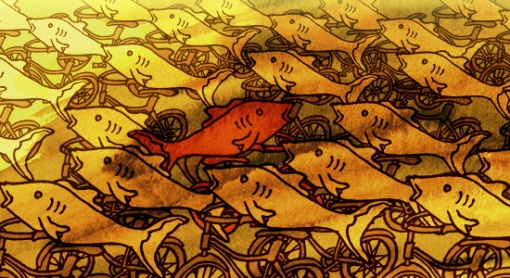Transcribing and Analysing Interviews
I have done about 12 interviews so far and will probably end up with about 15 in total. The interviews are recorded using an app on my iphone and then I use dropbox to store the recordings. I transcribed each interview verbatim to enable a familiarity with the material by listening closely to the interviewee. As Gray states, transcription can seem an onerous task but it has the advantage of engaging the researcher in a profound way with the material. Indeed, Gray suggests that detail such as voice qualities and pauses in the conversation can be significant for the interpretation and analysis. For example, I state when someone laughs and describe the nature of that laugh as best I can.
Furthermore, Gray’s approach enables the emergence of certain themes and ideas to develop as part of the transcribing process.
In this way analysis and interpretation became part of the process of research. This is when I was able to use my imagination, being sensitive to the material and experimental in my analysis. (Gray, 2003, p. 149)
Following Gray’s methodology, I have created categories such as: control, freedom, sense of responsibility, passion, role models, key networks, precarious work, happy, work and lifestyle, and so on (about 20 so far) based partly on the entrepreneurs’ stories but also as a result of key themes arising from the literature. Sections from the transcripts are collected under each category to enable me to see each entrepreneurs’ articulation of the theme together; these can be compared and contrasted in relation to each other and to the literature. For the analysis, Gray advocates flexibility and an open mind to the potential relations between categories and for new themes to emerge. I am using simple processes with colored pens and large sheets of paper to make these connections – a bit like a mind map or a conceptual map.
But Gray also talks about the importance of not loosing the individual’s voice through this process of chopping up the text. The individual narrative or story created during the interview is unique. While the idea of a ‘true’ story is nowadays considered an anathema, it is not up to the researcher to re-describe it. The researcher needs to respect the interviewees’ story as it was told at the time of the discussion. For more information on this subject see Narratives in Social Science Research by Barbara Czarniawska.



